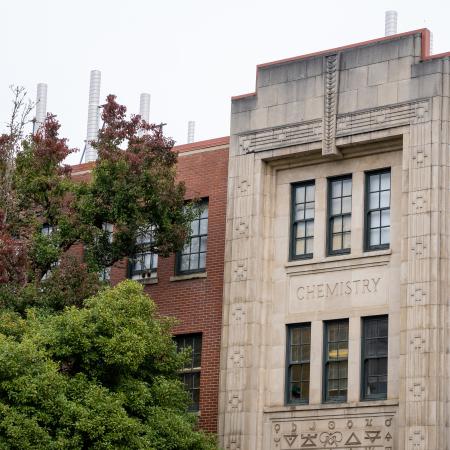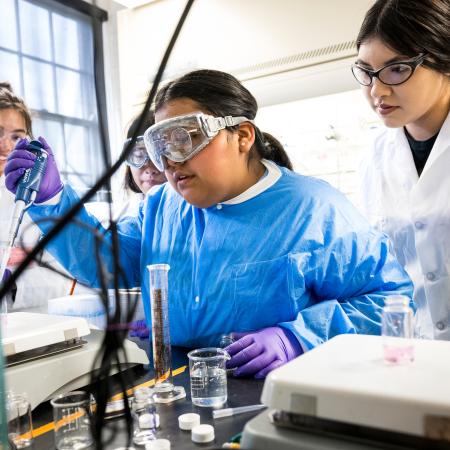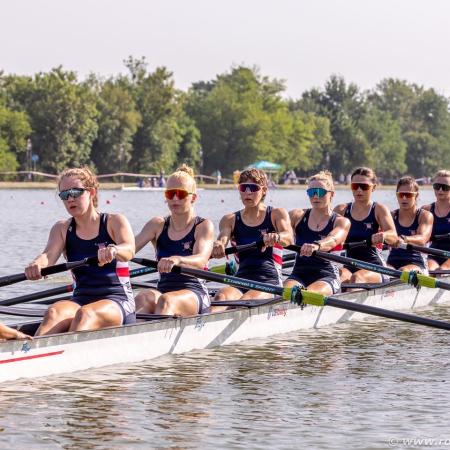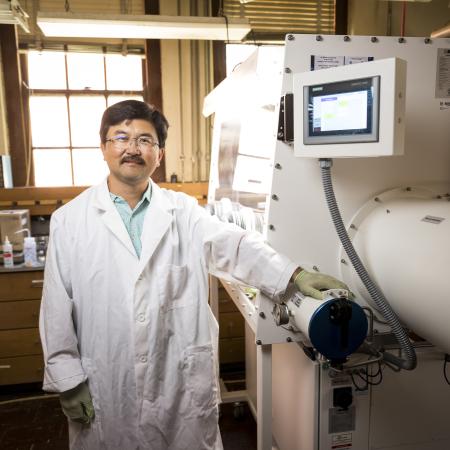The Department of Chemistry within the College of Science is uniquely positioned to support Oregon State University’s mission of “producing graduates competitive in the global economy, supporting a continuous search for new knowledge and solutions and maintaining a rigorous focus on academic excellence”. The Department develops robust thinkers and problem solvers through its coursework and provides experiential learning opportunities involving laboratory practice, research, internships, and professional development programs. We contribute to all of the signature areas of distinction in OSU Strategic Plan 4.0 with our highly collaborative research activities that actively engage in public scholarship and outreach, our undergraduate and graduate programs that prepare our students for rewarding careers, and our leadership in the areas of innovation and entrepreneurship. We value our broad mission to help develop the intellectual capacity and skills of our students, and, equally, we must strive to present an actively welcoming environment for everyone who enters our Chemistry community.
Chemistry has been called “the central science” for good reason – our discipline has an overarching impact on the biological and physical sciences and is uniquely positioned to solve many of the major societal challenges that face humanity. We understand well that the solutions to the current problems with energy, disease, and climate rely on advances in our understanding and control over materials, molecules and their reactions. For this reason, every top-tier academic institution in the U.S. is also home to a top-tier Chemistry program. The success of our Department is thus inseparable from that of the University.
Chemistry graduates are highly employable. Chemistry professionals maintain one of the lowest unemployment rates profession in the nation. Based on the US Bureau of Labor Statistics, employment for chemists and materials scientists is expected to the next decade, with faster growth expected for graduates with advanced degrees, particularly those with a Ph.D. We must prepare students well for these positions.
Our Department continues to be a vibrant enterprise consisting of 15 tenure-stream faculty, 15 instructional faculty, 15 emeritus faculty, and 14 staff who support approximately 110 graduate students, 12 postdoctoral and research associates, 220 chemistry majors, 940 chemistry minors and the several thousand students who enroll in our classes each year. Over the past 5 years, the Department has graduated an average of 17 Ph.D., 6 MS, and 35 BS students annually. Approximately 1/3 of our research and teaching activities are conducted in the Linus Pauling Science Center (LPSC), which provides a modern research and learning environment for our students and faculty. LPSC also houses outstanding shared instrumentation facilities for Nuclear Magnetic Resonance and Electron Microscopy suites. The majority of Chemistry operations remain in Gilbert Hall and Gilbert Addition. Gilbert Hall was completed in 1939 (remodeled partially in 1981) and Gilbert Addition was constructed in 1981. We need and are seeking, modern space to house the majority of our faculty and their research activities, along with the majority of our undergraduate program.
We continue to explore ways to increase our diversity and to present a welcoming, inclusive environment to the University community. Diversity in people, ideas, and perspectives promote excellence by broadening the educational experience for students, faculty, and staff. Over the past three years, 47% of our majors are female (the same as for OSU overall), 17% are under-represented minorities (compared with 25% at OSU) and 26% first-generation college students (compared with 23% at OSU). We will look for ways to achieve equal representation in our discipline and our Department. Equally, we must be actively inclusive and foster a culture that expects mutual respect and teamwork, and we can improve our communication skills. Our Department will work with existing local experts and facilitators to bring a diversity of people and groups into all our courses and activities.
Despite a reduction in our tenure-track faculty numbers in recent years, we continue to offer the third-largest Ph.D. program on campus while delivering about 70,000 student credit hours of instruction (including 12,000 of these via Ecampus). We seek to create even greater value by growing capacity within the Department. We offer here a set of strategic targets that can lead to distinction in all aspects of University life - research, education, student success, and service. Our faculty members are nationally recognized and well-supported by external grants and are supported by the full breadth of federal funding agencies (NIH, NSF, DOE, EPA, DOD, etc.) and industrial collaborations. We are a center for innovation - the discoveries and ideas we generate have resulted in numerous startup companies & licensed technologies. Furthermore, we are recognized as a campus leader in instruction and have helped OSU to establish and grow a top-ranked curriculum in online education, currently helping to educate about 2500 students who enroll in one of our Ecampus Chemistry courses each year. Students from around the world will experience leading-edge online technologies developed and taught by the same Department faculty who deliver our on-campus courses. We will work with our College, University & Foundation partners to find strategic investments in order to find opportunities to enhance, grow, and achieve national and international recognition of our strengths in both research and education.
One hallmark of our program has been a vibrant entrepreneurial spirit at all levels. The Department is proud to be home to the faculty and student founders of nine separate start-up companies. We are internationally recognized for making breakthrough fundamental discoveries and translating them to practical use, with program awards received by the Center for Sustainable Materials Chemistry (CSMC), a Center for Chemical Innovation, and the Research Training grant entitled “Research to Innovation to Society”, funded by the NSF. The unique research and education programs developed by the CSMC continue to help students learn how to effectively translate very basic research outcomes into commercial products. Through partnerships with the College and the University, we plan to build on this strong foundation to promote successful outcomes such as new grant support, more fellowships and awards for our students and faculty, a greater value of our BS, MS, and Ph.D. degrees, and higher student achievement in our foundational courses.



